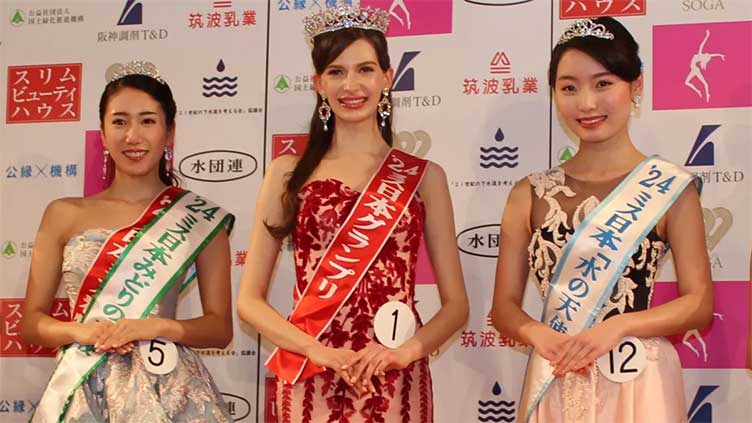Foreign-born Miss Japan sparks debate on what it means to be Japanese

Entertainment
The model who was born in Ukraine and looks Caucasian, has lived in Japan for more than 20 years
TOKYO (Reuters) – The crowning of Ukrainian-born model Karolina Shiino as the winner of the Miss Japan contest this week has triggered a social media debate on what it means to be, and look, Japanese.
The 26-year-old model, who was born in Ukraine and looks Caucasian, has lived in Japan for more than 20 years and is a naturalised citizen. Over the years, Japan has further opened its doors to foreigners as a way to reverse its declining birthrate, one of the lowest in the world.
"I live as a Japanese person, but there have been racial barriers and many instances where I wasn't accepted," Shiino said in fluent Japanese during a tearful acceptance on Monday.
"I'm just filled with so much gratitude that I have really been accepted as a Japanese person today," she said.
Several people took to social media to question whether Shiino is truly the face of Japan. "So, someone who doesn't have a drop of Japanese blood and has no trace of Japanese-ness is going to represent Japanese women?" said one person on the social media platform X.
Others said she had the right to represent the country she belongs to. "If you have Japanese citizenship then you are a Japanese. Isn't that all there is to say? What more is there to prove?," another X user said.
The reaction to Shiino's victory echoes the firestorm that surrounded Ariana Miyamoto, the daughter of a Japanese mother and African-American father, who represented Japan in the Miss Universe pageant in 2015.
But Shiino hopes people will see past her looks. On the beauty competition's website, Shiino wrote that although she looks foreign, she is Japanese in spirit.


